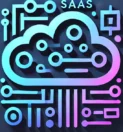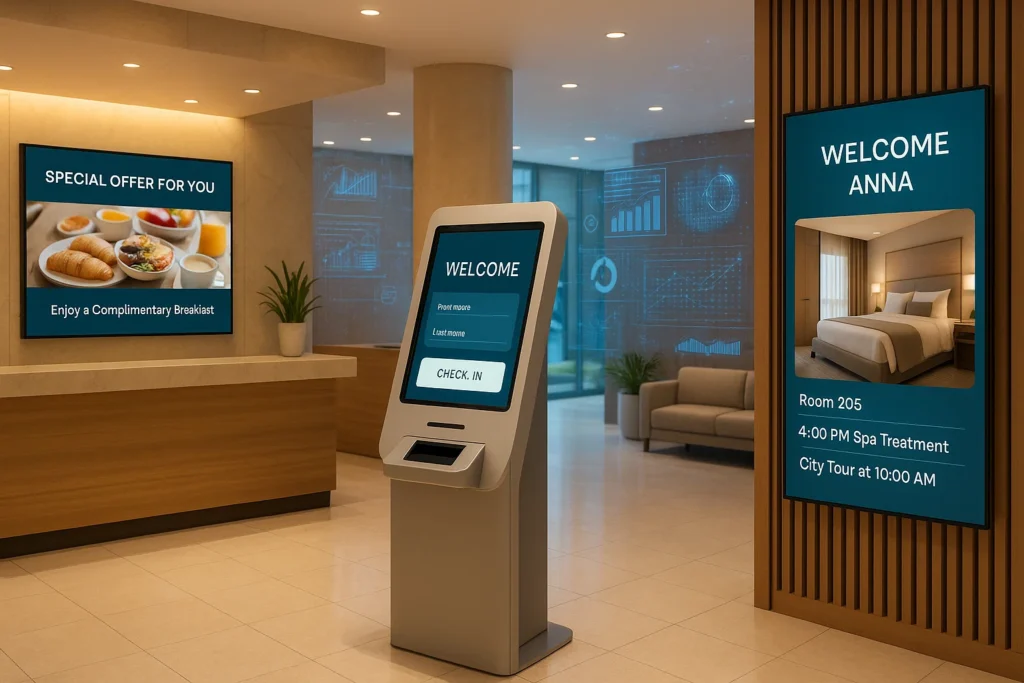Discover how AI is cutting acquisition costs in hospitality by 2025. Smarter marketing, personalization, and automation drive profits & guest loyalty.
How AI is Cutting Acquisition Costs in Hospitality 2025
The hospitality industry is no stranger to change. From the introduction of online booking platforms to the rise of mobile-first travel planning, hotels and resorts have had to adapt constantly to evolving guest expectations. But in 2025, one factor is reshaping the entire customer acquisition model more than anything else: Artificial Intelligence (AI).
Customer acquisition has traditionally been one of the costliest aspects of hospitality. Between advertising, commission fees to Online Travel Agencies (OTAs), and the challenge of converting first-time guests into loyal customers, hotels spend a significant percentage of revenue on simply getting people in the door. AI, however, is flipping this equation—empowering hospitality businesses to slash acquisition costs, improve efficiency, and create direct, lasting relationships with their guests.
This article explores how AI is cutting acquisition costs in hospitality in 2025, backed by real-world strategies, technological advances, and industry case studies.
The Rising Cost of Guest Acquisition in Hospitality
Before diving into AI solutions, it’s important to understand the problem.
- OTA Dependency: Hotels rely heavily on platforms like Booking.com, Expedia, and Airbnb, paying 15–25% commissions per booking.
- Digital Ads: PPC campaigns and social media ads consume a large chunk of marketing budgets, often with diminishing returns.
- High Competition: With thousands of hotels competing for visibility, the cost of standing out keeps rising.
- Low Guest Loyalty: Many travelers shop based on price, making it harder to retain customers without consistent engagement.
In 2025, these challenges are magnified by inflation, shifting travel preferences, and rising marketing costs. AI is emerging as the most powerful tool to tackle them.
How AI is Cutting Acquisition Costs in Hospitality
1. Smarter Guest Targeting with Predictive Analytics
Traditionally, hotels relied on broad marketing campaigns, hoping to reach the right audience. Today, AI-driven predictive analytics makes targeting precise and cost-effective.
- Behavioral Data: AI analyzes browsing patterns, booking history, and social media signals to identify high-potential customers.
- Dynamic Pricing: Machine learning adjusts room rates in real-time, increasing conversion rates while reducing wasted ad spend.
- Geographic Targeting: AI pinpoints travelers planning trips within specific locations, ensuring marketing dollars reach likely bookers.
Hotels using predictive analytics in 2025 report up to 30% lower acquisition costs, as marketing efforts are concentrated on the most relevant audiences.
2. Reducing OTA Dependence with AI-Powered Direct Bookings
OTAs are convenient, but their commissions cut deeply into hotel profits. AI helps shift bookings from third-party platforms to direct channels.
- AI Chatbots on Hotel Websites: Available 24/7, these bots answer queries, upsell services, and guide users to book directly.
- Voice Search Optimization: With AI-powered SEO, hotels capture voice-driven searches like “best family hotel in Miami with a pool,” reducing reliance on OTAs.
- Personalized Offers: AI generates tailored promotions (e.g., discounts for returning guests, package deals for couples), incentivizing direct bookings.
By driving more guests to official websites, hotels in the USA are saving millions in OTA fees in 2025.
3. AI-Powered Marketing Automation
Marketing in hospitality is often resource-heavy. AI automation reduces costs while enhancing engagement.
- Email Campaigns: AI segments guest lists and sends hyper-personalized messages, improving open rates by up to 40%.
- Social Media Content: AI tools generate high-performing ad creatives and schedule posts at optimal times.
- A/B Testing at Scale: AI instantly analyzes which ads convert best, ensuring budgets are focused on high-ROI campaigns.
This automation means marketing teams can do more with fewer resources, directly lowering acquisition costs.
4. Hyper-Personalization to Boost Conversions
Personalization isn’t just a buzzword—it’s a proven strategy for reducing acquisition costs. AI-driven personalization turns first-time visitors into loyal guests.
- Website Experience: AI dynamically tailors landing pages based on visitor intent. A family searching for Orlando sees kids’ packages, while a business traveler sees conference amenities.
- Booking Recommendations: Machine learning suggests upsells (spa packages, tours) that align with guest preferences.
- AI Loyalty Programs: Smart loyalty systems track behavior and automatically deliver personalized rewards, encouraging repeat bookings.
This deeper connection reduces churn, meaning hotels spend less on acquiring new guests.
5. Conversational AI for Guest Engagement
Guests often have questions before booking, and unanswered queries can mean lost sales. Conversational AI eliminates this friction.
- Multilingual Support: AI assistants speak multiple languages, capturing international bookings without extra staffing costs.
- Real-Time Availability: Bots provide instant room availability and pricing, preventing drop-offs.
- Seamless Integration: AI systems sync with booking engines, allowing customers to complete reservations within the chat interface.
This improves conversion rates significantly, reducing wasted marketing spend.
6. Leveraging AI in Reputation Management
Online reputation is everything in hospitality. A single negative review can deter dozens of potential bookings. AI helps reduce acquisition costs by maintaining a strong brand image.
- Sentiment Analysis: AI tools scan reviews across platforms to identify recurring issues and suggest solutions.
- Automated Responses: Smart systems reply to reviews instantly, ensuring no comment goes unanswered.
- Proactive Guest Care: AI predicts which guests might leave negative reviews and prompts staff to intervene.
By protecting brand reputation, hotels spend less on overcoming negative perceptions and rebuilding trust.
7. AI in Revenue Management
Revenue management and acquisition costs are deeply linked. AI ensures hotels get the most value out of every booking.
- Dynamic Room Pricing: Adjusts prices based on demand, competition, and guest behavior.
- Forecasting Demand: Predicts booking patterns to help allocate marketing budgets effectively.
- Maximizing Occupancy: AI prevents underselling rooms during peak seasons while ensuring higher occupancy in slow periods.
The result is improved revenue per available room (RevPAR) with lower acquisition costs.
8. AI-Powered Content Creation & SEO
Getting organic traffic is one of the most cost-effective acquisition strategies. In 2025, AI tools help hotels dominate search results.
- SEO-Optimized Blog Posts: AI analyzes trending keywords like “romantic getaways in California” and creates content to attract organic clicks.
- AI Video Tools: Automated video creation boosts engagement on platforms like TikTok and YouTube, reducing ad costs.
- Voice SEO: AI ensures websites rank for natural language queries, capturing organic bookings.
Organic traffic reduces reliance on expensive paid ads and OTA listings.
9. Case Studies: AI in Action
Case Study 1: A Boutique Hotel in New York
By adopting AI-driven predictive analytics and direct booking tools, the hotel reduced OTA dependency by 40% in 2025, saving over $500,000 annually.
Case Study 2: A Resort Chain in Florida
Implemented AI-powered loyalty programs and marketing automation. Acquisition costs dropped by 25%, while repeat bookings grew by 35%.
Case Study 3: A Las Vegas Casino Hotel
Used AI for dynamic pricing and guest personalization. The hotel achieved 20% higher revenue per booking while reducing paid ad spend by 30%.
Challenges & Considerations
While AI offers immense potential, it isn’t without challenges.
- Implementation Costs: Initial investment in AI systems can be high.
- Data Privacy Concerns: Hotels must comply with data protection laws when using guest data.
- Staff Training: Employees need to adapt to AI-driven workflows.
- Over-Reliance on Automation: Balance between AI and human touch is crucial in hospitality.
Hotels that address these challenges head-on will see the greatest benefits in acquisition cost reduction.
Future Outlook: Hospitality in the Age of AI
By 2025, AI is no longer optional—it’s essential. Hotels that embrace it are not just saving on acquisition costs but also building deeper guest relationships and unlocking new revenue streams.
Looking ahead:
- AI-Powered Metaverse Marketing: Virtual hotel tours are becoming mainstream.
- Generative AI in Branding: Custom ad campaigns created instantly for target segments.
- Autonomous Service Bots: Reducing operational costs while enhancing guest experience.
The next five years will likely see AI become as fundamental to hospitality as online booking once was.
Conclusion
In 2025, the hospitality industry stands at a turning point. Rising customer acquisition costs have forced hotels and resorts to rethink traditional marketing models. AI has emerged as the ultimate game-changer—helping businesses target smarter, personalize deeper, automate faster, and engage better.
By embracing AI, hotels can:
- Cut OTA dependency.
- Reduce marketing waste.
- Increase guest loyalty.
- Drive more direct, high-margin bookings.
The result? Lower acquisition costs, higher profitability, and stronger guest relationships.
For hoteliers in the USA, the message is clear: those who adopt AI today will be the industry leaders tomorrow. Hospitality isn’t just about welcoming guests anymore—it’s about welcoming the future.

